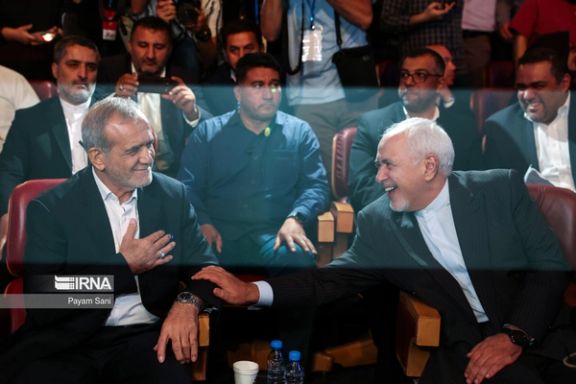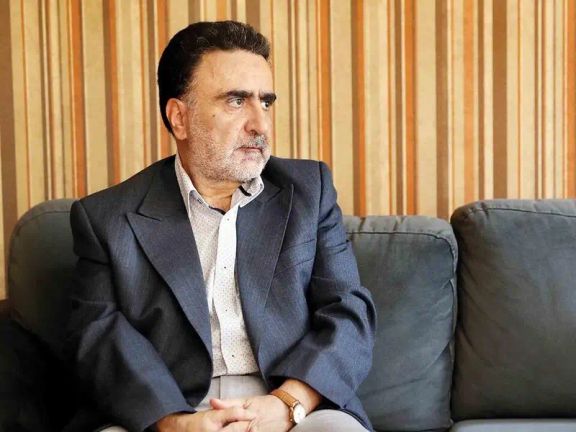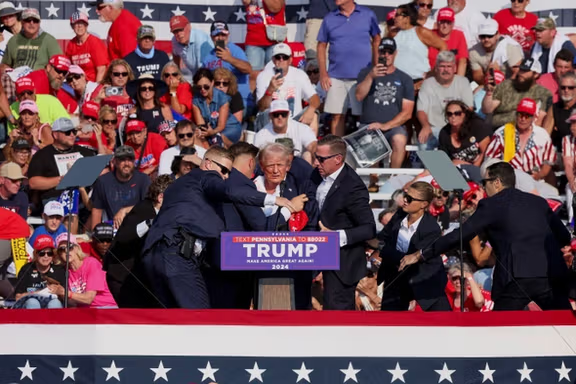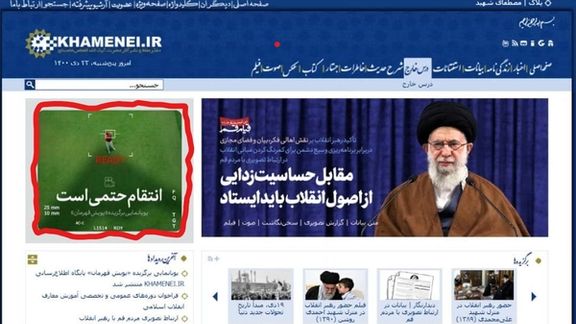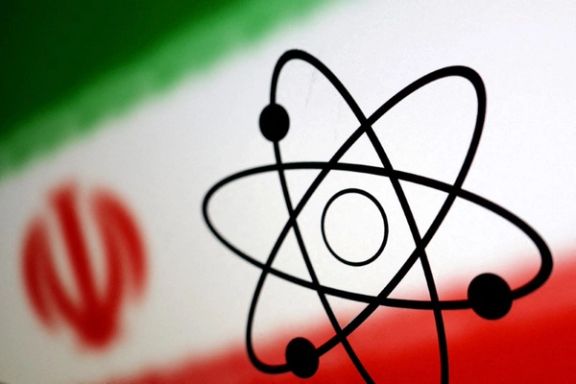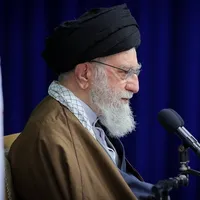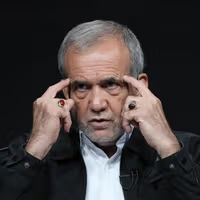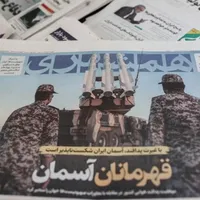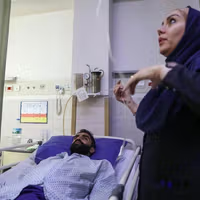In the letter titled "Why Didn't I Vote but Kept Silent?" published on Tajzadeh’s social media channels Wednesday, he provided a detailed analysis of why he boycotted the elections.
"The current crises are rooted in the flawed political and legal structure of the regime and the poverty-inducing, corruption-breeding, and obstructionist policies of the Leader," wrote Tajzadeh.
Tajzadeh further pointed to Khamenei holding the utmost power in the context of the Presidential elections process.
Iran’s presidential candidates go through a vetting process by the 12-member Guardian Council all of whom directly and indirectly are appointed by Khamenei. Their role in supervising elections and approval or disqualification of candidates extends beyond presidential elections to Parliamentary elections and Iran’s Assembly of Experts elections. Moreover, the Council has veto power over legislation passed by the Iranian Parliament.
“In any society, the concentration of authority and its lifelong transfer to one person makes elections meaningless, the government and the parliament ineffective, and the judicial system a tool to suppress critics and legal opponents," Tajzadeh added.
One of the handpicked candidates for Iran's presidential race, Masoud Pezeshkian was declared the winner on July 6 becoming the country’s ninth president.
Tajzadeh stated that if Khamenei's policies remain unchanged, he expects president-elect Masoud Pezeshkian to encounter the same challenges as Hassan Rouhani did during his second term. Rouhani served as Iran’s President from 2013 to 2021 across two consecutive terms.
In 2015, under Rouhani Iran reached a nuclear deal - the Joint Comprehensive Plan of Action (JCPOA) with several world powers, including the United States, which limited Iran’s nuclear program in exchange for International sanctions relief. However during Rouhani’s second term, in 2018 former President Donald Trump withdrew from the deal marking the beginning of what he termed 'maximum pressure' sanctions on Tehran.
Tajzadeh added: “Rouhani's second administration failed due to three reasons: the [Supreme] Leader's opposition, his own mistakes, Trump's maximum pressure and America's withdrawal from the JCPOA.”
He further criticized Khamenei's foreign policy, stating that the Supreme Leader's decisions have placed Iran at the forefront of a conflict with Israel and imposed heavy, avoidable costs on the nation through unnecessary anti-Americanism.
Meanwhile, throughout his campaign, Pezeshkian has maintained that he would be following the policies of Khamenei. In this light, Tajzadeh criticized Pezeshkian stating: “I find the attempt to implement the guidelines and policies of Mr. Khamenei to be the continuation of the status quo and complicity in the atrocities and corruption of the government.”
Tazjadeh stated that Khamenei changed his election strategy from 2017 onwards and instead of "maximum participation with an unknown result", he adopted the strategy of "minimum participation with a guaranteed result."
More than 60% of eligible citizens did not participate in the first round of presidential elections, and over 50% abstained from voting in the runoffs.
Tajzadeh outlined three conditions for justified participation in elections: meaningful competition, a citizen participation rate above 50%, and the ability of elected candidates to fulfill their promises. He stated that none of these conditions were met in the recent elections.
Tajzadeh’s letter comes following his boycott of the snap presidential elections alongside 100 other political prisoners, including Nobel Peace Prize laureate Narges Mohammadi and former MP Faezeh Hashemi Rafsanjani, daughter of former two-term president Ali Akbar Hashemi Rafsanjani.
While many dissidents inside Iran called for the boycott of the elections and abstained from participating, Tajzadeh refrained from urging the nation to boycott.
In his letter, the former advisor to Iranian President Mohammad Khatami explained his rationale for not calling for a boycott.
“I remained silent and did not urge anyone to abstain from voting because I did not want to hinder the progress of Pezeshkian's election campaign and his supporters, especially Mr. Khatami who believed that despite the election engineering, this time, unlike in 2021, the victory of a candidate critical of the status quo was within reach.”
He further added that he didn't want to “disappoint friends” who view Pezeshkian being allowed to run for the presidency as a step forward. He added that while he hopes this development is positive, he remains skeptical about Khamenei.
